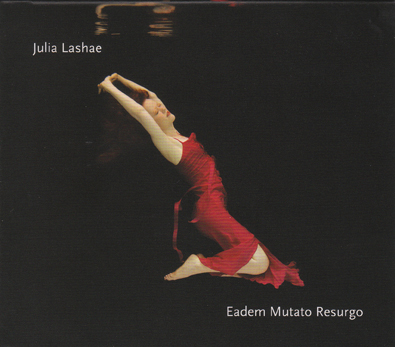 The title phrase—if you substitute “mutata” for “mutato”—translates in Latin to “Although changed, I shall arise the same,” and Julia Lashae embodies that thought. For the occasion, the jazz vocalist has turned her attention from canonical standards to more singer/songwriterly material, and even though the change has consequences, ultimately the results are very Lashae.
The title phrase—if you substitute “mutata” for “mutato”—translates in Latin to “Although changed, I shall arise the same,” and Julia Lashae embodies that thought. For the occasion, the jazz vocalist has turned her attention from canonical standards to more singer/songwriterly material, and even though the change has consequences, ultimately the results are very Lashae.
The shift in source material matters because the standards were the product of songcraft. Listeners could believe that the singer knew what he/ she was singing about, but no one assumed the song emerged from his/ her life. On the other hand, songs by Judy Collins, Joni Mitchell and Tom Waits seem like extensions of them, and the songs’ voices are more personal. Lashae steps into songs by them, the Beatles, Paul Simon and Oasis with mixed results. The highlight is her version of “Still Crazy After All These Years,” which she treats offhandedly, sing-speaking much of it, but playing just enough with Simon’s melody to make the song distinctive. The words matter, but not as much as her performance of them.
In other cases, though, she’s trying to honor someone else’s personal, poetic expression and be her musical self at the same time. The results are often a little cabaret for me, but I recognize that is a taste issue. Others may find her clear diction and warm performance winning and positive; for me, it’s a little theatrical, performed rather than felt.
Whatever the case, Eadem Mutato Resurgo is a provocative attempt to broaden the musical horizons of female jazz vocalists. Regardless of how well it works, it’s far more welcome than another journey through the more standard standards.




